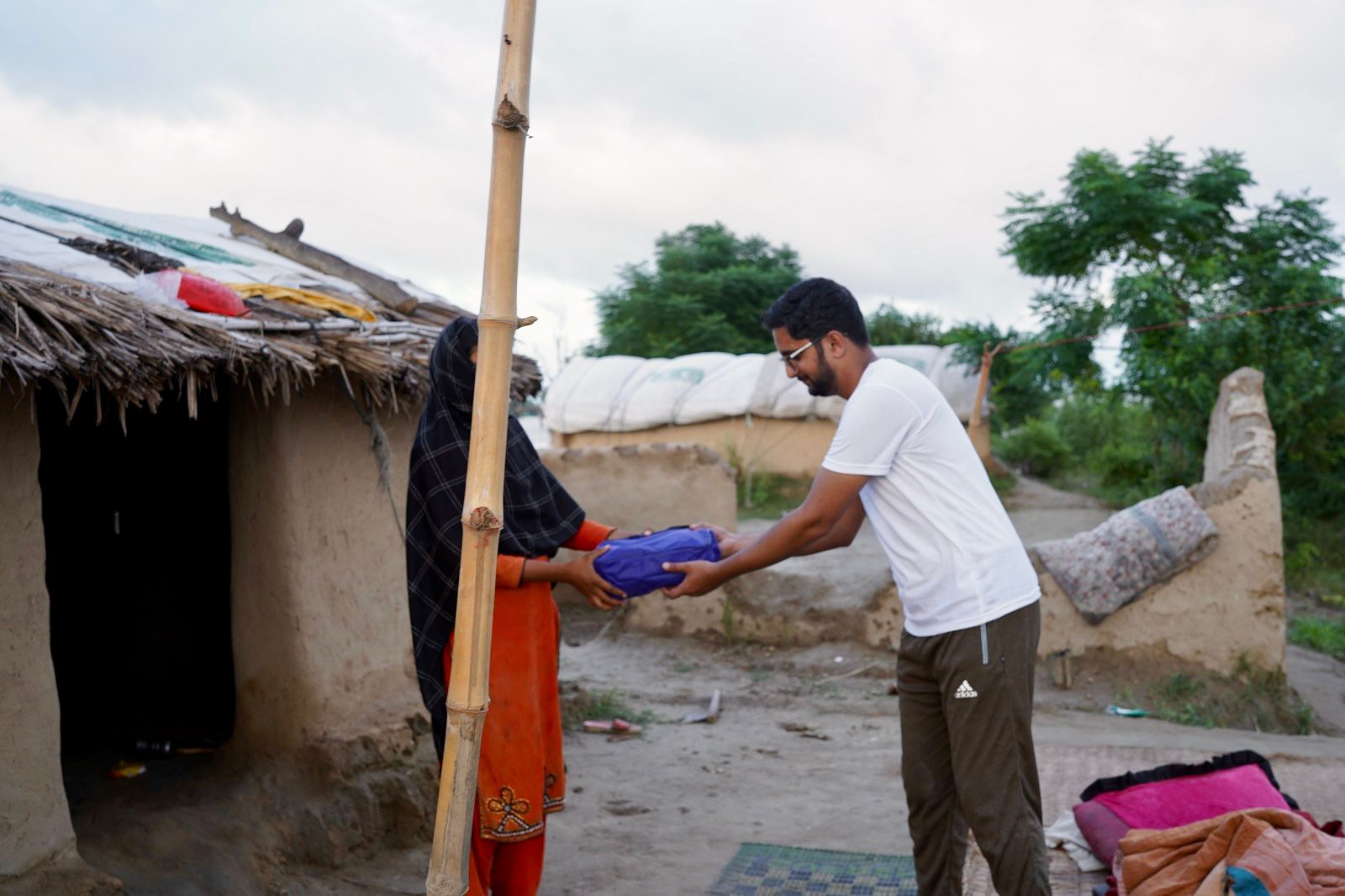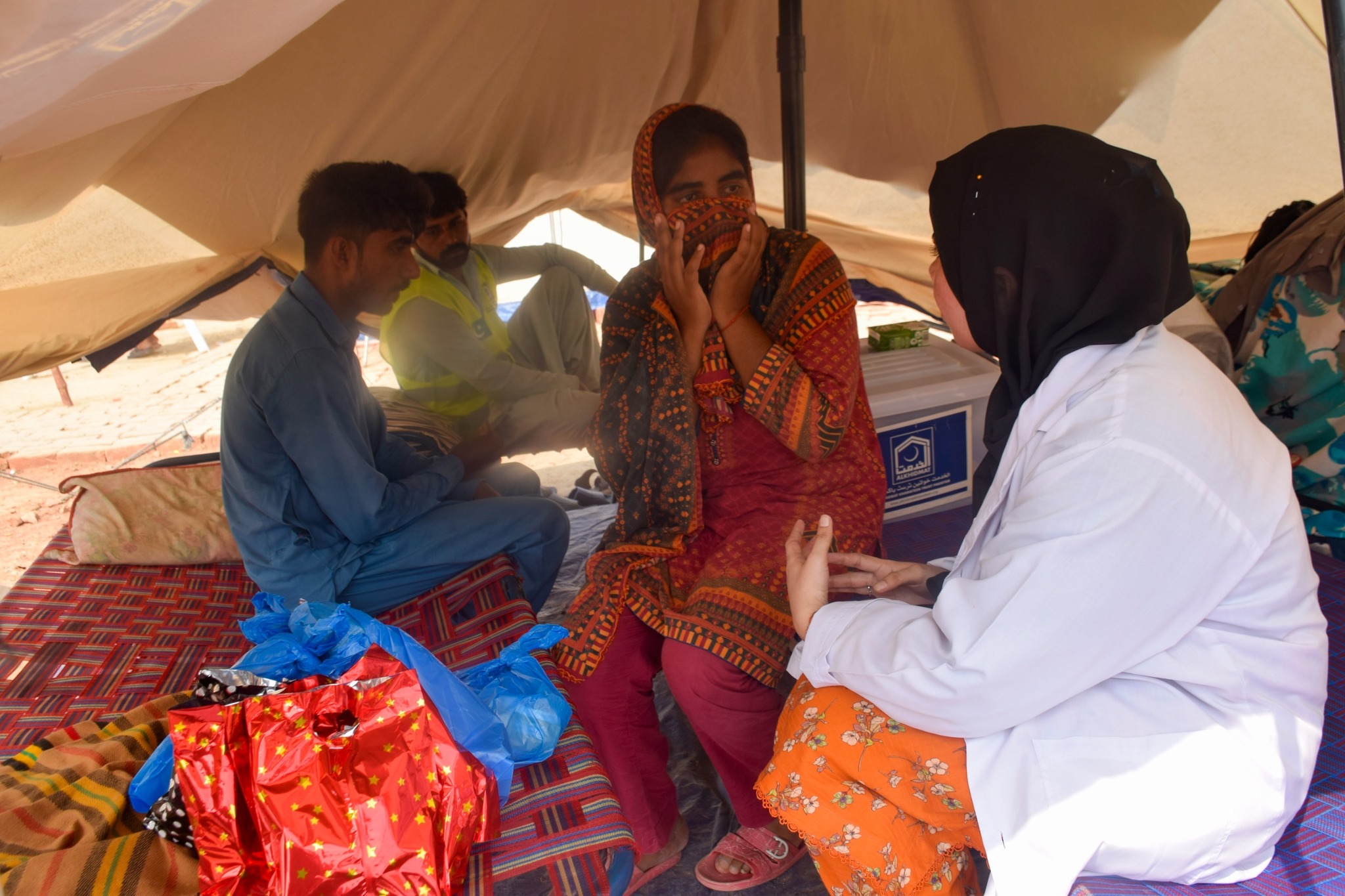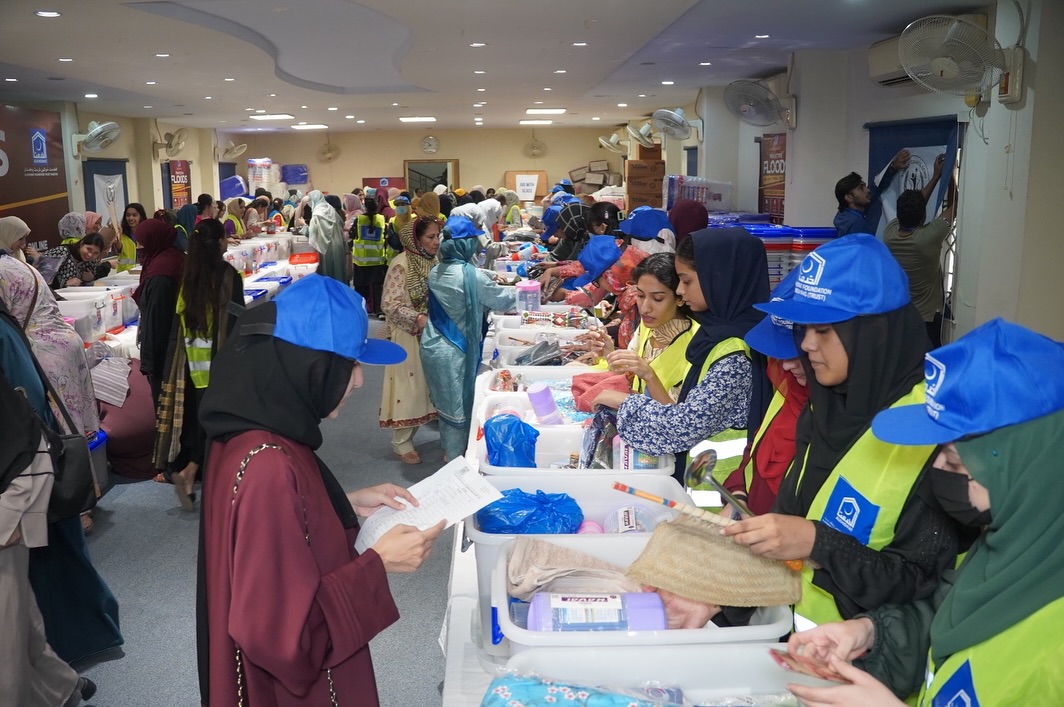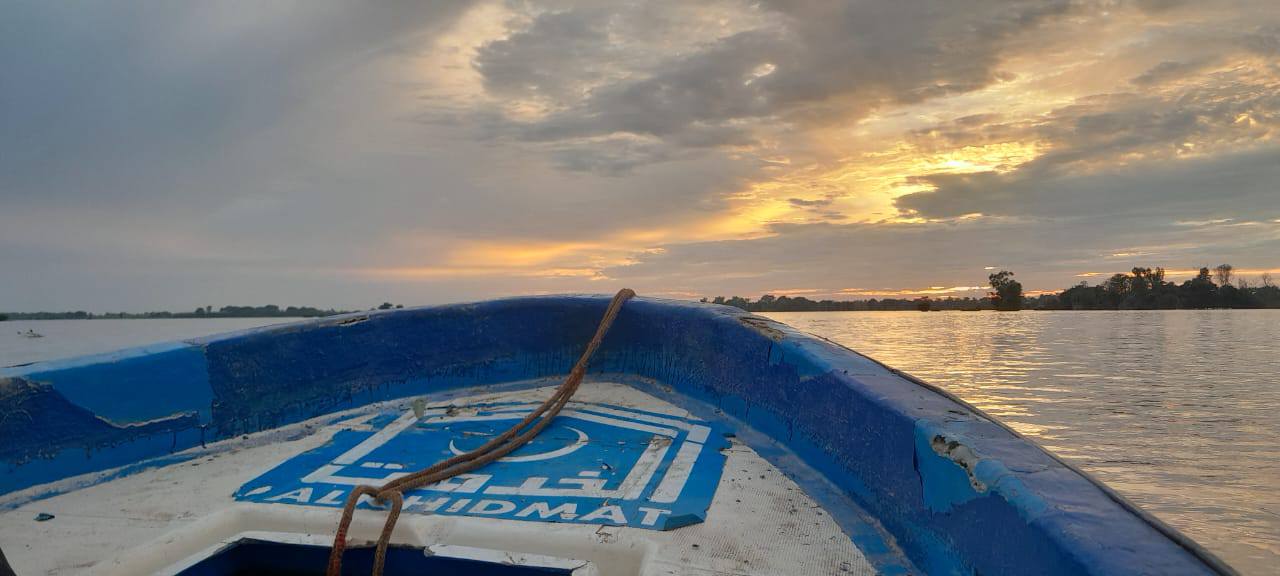- Dr. Azalfa Malik
- October 23, 2025
- Updated about
A struggle silently hidden in the flood aftermath
In Pakistan and among other developing nations, reside the unfortunate individuals who almost yearly face dire losses at the hands of Monsoon floods despite their limited ability to deal with natural hazards and climatic distress, all due to grave inattention by the government to basic infrastructure development, inadequate legislations for environmental protection irrespective of the regime, unstable economy with drastic variation in income consumption behavior and uncontrollable variability in weather. In the context of Pakistan with this high risk of natural calamities, our women are far more vulnerable to disasters particularly due to no or less control over ownership of resources as a result of their socially inferior position.
The National Disaster Management Authority (NDMA) have released in recent reports that nearly 4 million people have been affected since late June, with over 1,000 deaths and hundreds of thousands of homes destroyed by the inundation. Although these figures unfortunately keep rising, we must note that among them are an estimated 1.5 million women of reproductive age, now surviving in makeshift shelters where sanitation and privacy are scarce and face issues like homelessness, lack of financial and nutritional provisions and no access to even the very basic modalities of healthcare.

As the entire nation grapples with the aftermath of the devastating floods of 2025, millions of displaced women face a massively overlooked emergency: the struggle to maintain hygiene and dignity in relief camps and submerged villages. They also go through extreme levels of hardship for protecting their family from health hazards, arranging medicine and meals often covering several miles to obtain water for cooking and washing purposes with oftentimes little choice but to sell their only asset; jewelry in order to somewhat stabilize the status of their disaster-stricken households. This results in progressive physical and mental health decline and the lack of available resources further aggravates it.
Women’s needs are frequently ignored from health facilities during disasters, specially in those of reproductive age and unfortunately despite all sorts of modern advancements in technology; those who are menstruating, lactating and pregnant suffer more.
While floods wash away homes, crops, and livelihoods, they also disrupt access to very basic health services and hygiene facilities. For women and girls, this creates unique risks; some of which can be summarized into:
-
Compromised maternal and child health
Many pregnant women have lost access to antenatal and postnatal care, with rural health centers damaged or unreachable. No healthcare setups to cater for their basic and advanced needs during term, delivery or post-partum.
High incidence of infections like hepatitis, UTIs and chorioamnionitis may complicate several pregnancies and gynecological exams and sterile birth is challenging.
Lactating mothers and infants suffer from limited financial, nutritional, pharmaceutical and vital health resources. Planned parenthood is increasingly out of reach in the current lack of essential tools and counselling services.
-
Rising risk of different illnesses
Stagnant water is fueling outbreaks of waterborne diseases such as diarrhoea, cholera, conjunctivitis, gastroenteritis, skin diseases, tick bites, lice and flea infestations, parasitic and non-parasitic infections.
Numerous cases of high-mortality febrile illnesses like malaria and dengue emerge. Communicable diseases like influenza, measles, tuberculosis as well as hepatitis A and E thrive in poor sanitation.
Impossibly high incidence of multitude of diseases outweighs treatability in the face of limited medications and supplies, aggravated by logistical turmoil and domestic financial crises.
-
Menstrual and other hygiene crises
Essential amenities for life such as clean water and safe shelter are not available. Without sanitary products or private toilets, many women are forced to wait until dusk or nightfall to relieve themselves outdoors in unsanitary locations.
This hazards exposing them involuntarily to snake and scorpion bites, insect-borne diseases, dermatological rashes, genitourinary infections and unfortunate but ever-looming incidents of physical and sexual harassment.

Humanitarian data highlights that 44% of pregnant women in Pakistan are already anemic. With limited food, poor sanitation, and no privacy, the floods have pushed many into even more dangerous conditions. A mother in a relief camp near Multan described her ordeal;
“We have lost our homes and now we have lost our privacy too. Even soap or a sanitary pad feels like a luxury."
Recognising this urgent need, Alkhidmat Foundation Pakistan, in partnership with the World Health Organization (WHO) and the Punjab Health Department has taken action to protect the dignity of displaced women.
Alkhidmat Foundation resolutely stands at the forefront of rehabilitation through continued disaster management campaigns and hones focus at the diverse issues faced by female flood victims nationwide where 5,000 Hygiene and Dignity Kits were officially handed over to the Director General Health Services Punjab for distribution in flood-affected districts. An officer representing Punjab Health Department comments.
“These kits will reach deserving women living in relief camps and remote flood-hit areas. Alkhidmat and WHO have stepped forward at a crucial time to support the government’s response.”
While a WHO representative echoed this very sentiment in the words;
“Alkhidmat Foundation is always on the frontline of humanitarian response. That is why both the public and the government trust their efforts."
The hygiene kit distribution campaign reflects a broader Alkhidmat–WHO commitment made to ensure we are safeguarding women’s dignity and also improving public health standards in emergencies. It also underscores the importance of government partnerships in scaling support to reach the most vulnerable groups and individuals of the affectees and national population.
Each kit includes 12 essential items such as:
-
Sanitary pads
-
Soap and towels
-
Undergarments
-
Shampoo and combs
-
Toothpaste and toothbrushes
-
Nail clippers
-
Other miscellaneous items for personal care

Despite this ongoing campaign, we must note that aid workers stress that 5,000 kits are only just the beginning. This is proving to be a mere drop in the ocean with millions still affected and without any supplies. Therefore expanding hygiene and sanitation facilities as well as women’s healthcare services will be crucial to preventing a secondary health crisis on top of the pre-existing list of endless damages. An affiliate health officer provides the following comment;
“The greatest challenge is for women who cannot move freely. These 5,000 hygiene kits, designed especially for women, will help restore dignity and reduce disease risks in the camps."
But the massive impact of Pakistan floods once again revealed that though disasters strike indiscriminately of gender, the burden of rehabilitation really hits women the hardest. Hygiene is not a luxury but a matter of human survival, basic health and personal dignity for each and every individual. Relief camps across Punjab and Sindh remain overcrowded, with families arriving daily. With damaged roads and limited access, delivering aid is a constant challenge that we are eager to overcome with the help of our donors and fellow citizens.

Through our synergistic partnership with the World Health Organization and the Punjab Health Department, Alkhidmat Foundation Pakistan keenly addresses this urgent crisis providing life-saving hygiene support to the thousands of displaced women and we reaffirm our commitment to stand right beside our community in their darkest hour.
Support Alkhidmat Foundation Pakistan in continuing this mission!
Together, we can assemble a canopy of safety under which we protect the dignity and health of every one of our women in each family affected by floods.
Bio.
show more
It is a long established fact that a reader will be distracted by the readable content of a page when looking at its layout.
It is a long established fact that a reader will be distracted by the readable content of a page when looking at its layout.